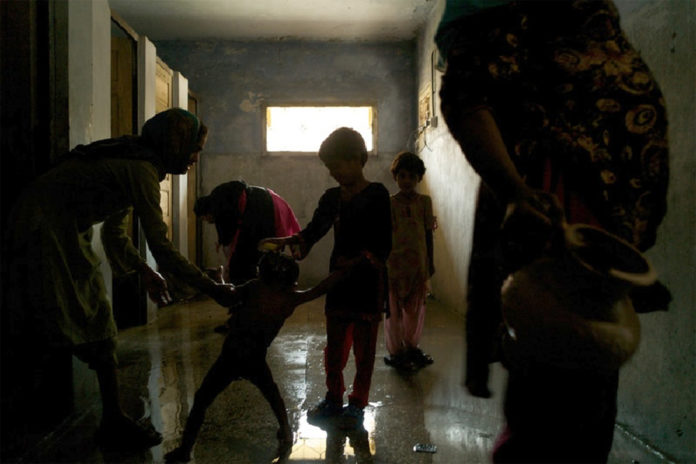Sitting in a humid basement office, Minahil Fatima, vice president of administration with the St. Thomas University Students’ Union, looks up a map of Pakistan’s floods on her phone.
As of Sept. 8, at least one-third of Pakistan was under water, Pakistan’s climate change minister, Sherry Rehman, told Agence France-Presse news agency.
Pakistan has some of the world’s highest mountains, and increased temperatures cause glaciers in these regions to melt. This, coupled with intense monsoon rains, brought flash floods that washed away entire villages. According to Pakistan’s prime minister, Shehbaz Sharif, 33 million people have been affected.
On top of the floods, many people risk starvation, and flood water brings an increased risk of waterborne diseases like malaria.
Fatima, an international student from Pakistan, feels people have no idea of the devastation.
“I got so many messages when I posted stuff on my [Instagram] stories about the floods,” said Fatima. “Like, ‘Oh, my God, I had no idea this was happening. Is your family okay?’”
Fatima feels that people and media outlets are predominantly focused on the death of Queen Elizabeth II, and there is a lack of coverage of the flooding in Pakistan — adding to the feeling of being disconnected.
“I’m surrounded by a community of people who have no idea what’s happening to a place that is so close to my heart,” she said.
Although Fatima has little expectation that people will learn about the flooding in Pakistan, she is glad to teach them, if people want to learn.
Tom Beckley, professor of environment and natural resource social science at the University of New Brunswick in Fredericton, said people in the United States and Canada are not “globally literate” in international affairs.
“One lesson is simply to not turn away, as difficult as it may be to watch that stuff, to be informed and to try to be a good global citizen by being aware of what’s going on,” Beckley said.
Beckley’s students impress him with their interest and knowledge in climate change, but he feels their actions are disconnected from what they learn. Sometimes, after class, he would hear students discuss going to the mall to shop.
He said that it is important to have hope, but that it must be active hope that involves examining one’s own impact on climate change.
“Everybody needs to do the best they can, and if you have to turn away periodically for your own sanity, well, take care of yourself,” Beckley said. “But do it so that you can come back another day and make your contribution.”

